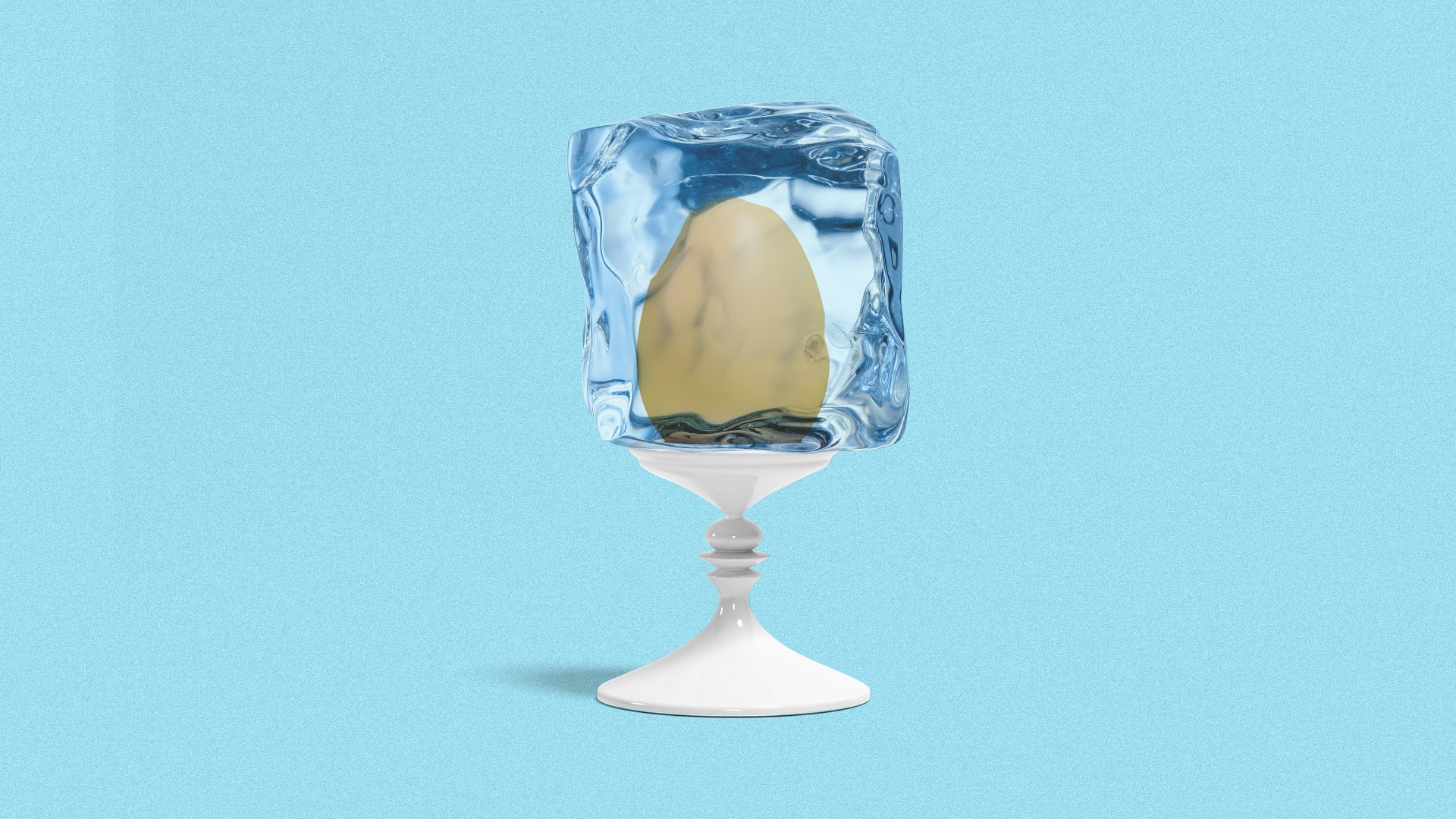Egg freezing frees women from their biological clocks but isn't foolproof
Add Axios as your preferred source to
see more of our stories on Google.

Illustration: Aïda Amer/Axios
A lucrative industry for egg freezing has sprouted in the past 10 years, allowing women to postpone pregnancy. Experts say easy access to the procedure isn't translating into more women using the eggs they put on ice.
The big picture: Nearly 90% of women said they were happy they froze their eggs, regardless of whether they will ultimately get used, according to FertilityIQ, an educational and reviewing site for fertility clinics.
- A small 2017 study published in Human Reproduction found that more than 90% of patients who froze their eggs for non-medical reasons haven't tried to thaw them.
Context: While the U.S. birth rate is at an all-time low, women are regarding the fertility business as an extension of family planning. They're freezing their eggs as a precaution even if they're never diagnosed as infertile.
- Egg freezing has become much more affordable. And while some companies offer insurance coverage for the procedure, only 30 Fortune 500 companies offer coverage, CNBC reports.
- It also helps free up the societal pressures to find a partner before their mid-30s, when estrogen levels peak, in order to have a family.
By the numbers: Nearly 11,000 women froze their eggs in 2017, per the Society for Assisted Reproductive Technology. The market is projected to grow 25% annually over the next two years, FertilityIQ tells Axios.
- On average, women spend $15,000 to $20,000 per extraction cycle in addition to about $1,000 a year to store them at a facility, FertilityIQ tells Axios.
- To tap into those eggs for in vitro fertilization (IVF) could cost thousands of dollars more.
- Women 35 and younger were twice as likely to have more eggs extracted and successfully frozen compared to those 35 and older, per data collected by FertilityIQ.
Yes, but: Egg storage and thawing is a very fragile process and therefore, the financial and physical expense women undergo isn't a guarantee come time for fertilization.
The bottom line: Women say freezing their eggs is more than being able to delay family, but that the procedure gives them a sense of insurance and freedom, the New York Times reports.
Go deeper:
